Department of Philosophy
Mediator Mentors Program
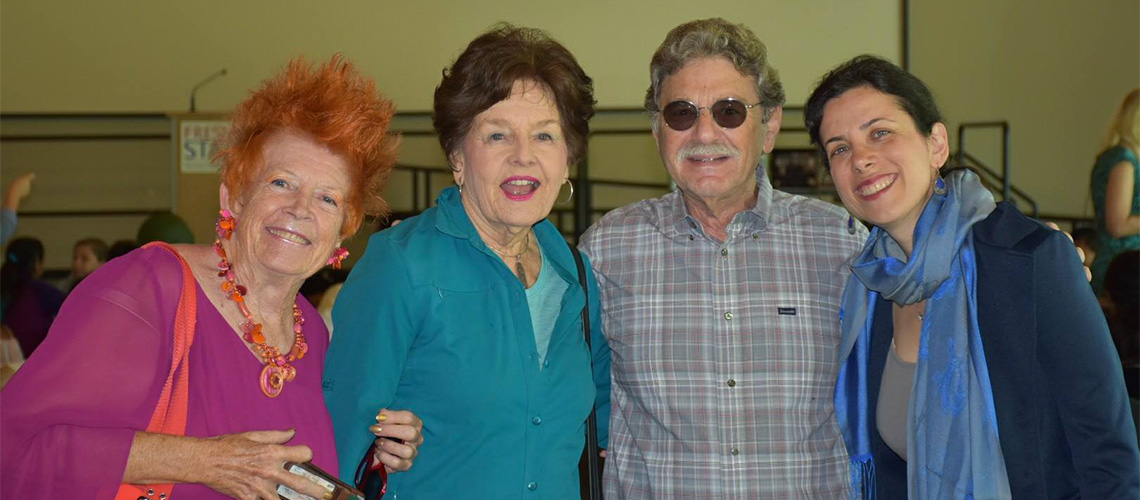
The Mediator Mentors Project at Fresno State is a university-public school partnership in which future teachers, counselors, social workers and school psychologists support the development of conflict resolution skills in school children. At California State University, Fresno, Dr. Negin Tahvildary in the College of Arts and Humanities directs the program. Teachers and students in the public schools receive 10-12 hours of communication and conflict resolution training and university students coach and mentor at lunch periods in elementary school or fifth period in middle school. More than 7,000 children and teachers have participated in the program!
#fsMentors #FresnoState #ConflictResolution
About the program
The Mediator Mentors project offers an opportunity for future helping professionals (teachers, counselors, social workers, school psychologists, etc.) to support the development of respectful conflict resolution skills among school children in our community.
The school-based peer mediation programs are active in Central, Fresno, Clovis, Sanger, Chowchilla, Dinuba and Kerman school districts. Students from California State University, Fresno’s, Peace and Conflict Studies program students may select one of the schools as an internship site. Training in mediation is provided, and all service learners have opportunity to spend lunch periods or after school time helping young peer mediators develop into skillful problem-solvers. Mediation is voluntary, facilitated problem-solving in which two student conflict managers help disputing peers come to a mutually satisfactory solution to their problem. University students mentor the mediators (elementary and middle school) and assist them with communication and strategies for effective interpersonal problem solving. Service learning credit and stipends for Fresno State students are available, and all Mentors receive training and curriculum to use in their future professional settings.
Mediator Mentors is a Win-Win situation for our schools and for students of all ages!
Negin Tahvildary, PhD, Project Director
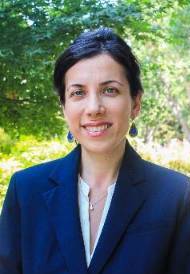
Dr. Negin Tahvildary has been teaching Peace & Conflict Studies and several other courses within the program since 2016. Previously, she worked as an information officer for the United Nations Assistant Mission to Afghanistan before being offered a position with a non-profit organization in Fresno where she found her path to the university. Tehran University (Iran) B.A. and M.A.; Azad University (Iran), B.A. (L.L.B.); Beheshti University (Iran), Ph.D.
Research Interests: Law, Peace Studies, Middle East Studies
negin@csufresno.edu
2380 E. Keats Avenue M/S MB 105
Fresno, California 93740-8024
ph 559.278.2621
fax 559.278.6484
Founder Dr. Pamela Lane-Garon
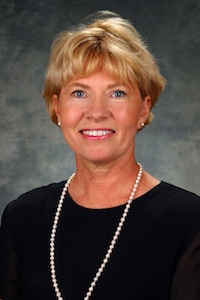
Dr. Pamela Lane-Garon was the founder of Fresno State's Mediator Mentor Program.
Through Dr. Lane-Garon's leadership and vision Fresno State's Mediator Mentor program has grown into a nationally recognized and award winning program.
Her legacy continues through the students and schools that she has assisted.
Director Christina Cassinerio
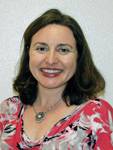
Christina Cassinerio-Wilson is a Special Education Teacher Coach in Fresno Unified and an experienced Conflict Resolution Educator. Mrs. Cassinerio-Wilson received her Master’s Degree in Special Education from Fresno State and obtained her Conflict Resolution Certification from the Strauss Institute of Dispute Resolution at Pepperdine University.
During her graduate study at Fresno State, she served as a Mediator Mentor at Scandinavian Middle School and Mediation Teacher Coordinator at Homan Elementary. Christina is also on the CRETE (Conflict Resolution Education in Teacher Education) Training team with Dr. Lane-Garon and Karen DeVoogd. In this capacity, she presents social-emotional learning content and related activities in four-day institutes twice a year (August and January). CRETE participants have been in-service and pre-service educators, masters and doctoral level learners at the university and psychologists and social workers in the community.
Professionally, Christina has served as President of the Central Valley Chapter of the National Association for Conflict Resolution and she is past chair of the National ACR Education Section. Christina has combined her passion for the field of special education with CRE. With her dual professional interests she advocates for conflict resolution education across the lifespan—and across learner abilities.
Director Karen Devoogd
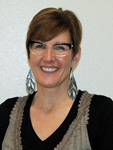
Karen DeVoogd is an experienced lecturer and faculty advisor at California State University Fresno, working with teacher candidates in the post-baccalaureate, multiple subject teaching credential program, CalStateTEACH.
She has been an instructor in this program for 15 years working with diverse student populations in Title One schools in the Central Valley of California. She taught elementary-aged and included special-needs students in Michigan and Texas, prior to coming to California. She also coordinated school based peer mediation programs and facilitated staff development in conflict resolution with curriculum integration in Michigan.
Karen earned both her Bachelor’s degree and Masters Degree from Michigan State University. Ms. DeVoogd administrates and facilitates the training of teachers, administrators, counselors and other professionals in conflict resolution skills. Karen is also trained as a community mediator in VORP protocol (Victim Offender Reconciliation Program).
She is a trainer with CRETE (Conflict Resolution Education in Teacher Education), under the guidance of Dr. Tricia Jones at Temple University. This training involves working with current and future teachers and administrators, in the application of conflict resolution theory and best practice into classroom instruction. Karen is the current Co-Chair of the Education Section of the National Association of Conflict Resolution (ACR). Karen also assists on the local ACR Central California Charter, working as board member with direct responsibilities in scholarship allocations.
Technology Support
Henry Placenti
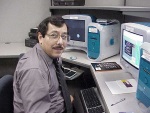
Henry Placenti has been an instrumental member of Fresno State's Mediator Mentor Program for years.
Henry has provided IT support for both the Mediator Mentors and CRETE programs at Fresno State.
Peter Fortuna
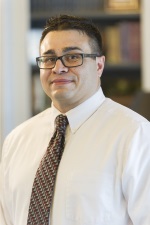
Peter Fortuna is an Alumni and Information Consultant at Fresno State.
Peter is Project Management Professional (PMP), has BS in Computer Science, MA in Education, and will be pursuing a doctorate in Education in 2020. As part of his MA in Education Peter was a founding member for a local charter school.
For the past several years Peter has served as a Mediator Mentor and CRETE trainer and as a Mediator Mentor at Ayer Elementary School in Fresno Unified.
Peter is also a member of Rotary International and serves as the Director of Technology for North Fresno Rotary. Peter is also a supporter of Association for Conflict Resolution (ACR).
Recognition and Awards
William J. Kreidler Award

Dr. Pamela Lane-Garon, professor Emerita of California State University, Fresno, educator, practitioner, and researcher has been awarded the prestigious William Kreidler Award from the National Association for Conflict Resolution (ACR) for excellence in advancing education in the field of conflict resolution, alternative dispute resolution.
Dr. Lane-Garon is the founder of Mediator Mentors at Fresno State and the Valley.
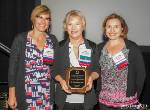
Karen DeVoogd and Christina Cassinerio-Wilson were honored with the nationally renowned William J. Kreidler Award by the Association for Conflict Resolution for excellence in advancing education in the field of conflict resolution, alternative dispute resolution.
Karen and Christina have powered the Mediator Mentor Program and continued the tradition that Dr. Pam Lane-Garon began.
Donate to Mediator Mentors
Contribute to a safe school climate invest in the next generation of peacemakers!
Donations can be made to Fresno State Foundation (We are a 501c non-profit)
Mail-in Donation
- Write on the Memo Line: Mediator Mentors
- Mailing Address
Mediator Mentors Program
Fresno State
2380 East Keats Ave. M/S MB105
Fresno, CA 93740-8024
Online Donation
Instructions:
- Go to http://bit.ly/2Pdtn1E
- Click "View All Giving Opportunities"
- Scroll to the very bottom
- Click "Other"
- Click "Continue"
- Under "Selected Designations" enter Mentor Mentors and donation amount (See image below)
- Complete remainder of the form
Program Data
The California Endowment gave Mediator Mentors a grant to implement and measure effects of program implementation in seven schools in the most needy area of Fresno. After a year and a half (which included pre and post assessment on prescribed variables), findings included the following summarized in the final grant report.
Mediator Mentors, Supporting Healthy Youth Development and School Safety
A Grant from The California Endowment
Summary of Findings 2011-2012
Pamela Lane-Garon
Karen DeVoogd
Charles Kralowec
- Mediators increased their dispositional empathy significantly more than non-mediators
- Non mediator (those who received no direct instruction) empathy scores actually decreased at post-test (one year interval)
- Interpretation: Direct instruction and guided practice matter in social skill learning, too! .
- Students who were trained and served as Mediators increased in dispositional perspective-taking significantly more than non-mediators.
- Non-mediator perspective-taking scores actually dropped at post-test.
- Interpretation: Again, direct instruction and guided practice matter in social skill learning.
A significant effect for time interval and for mediator status was revealed. This means that being a mediator matters to change-over-time in academic learning, specifically, Language Arts. CST Language Arts Scores were also found to correlate to perspective taking scores. The language of mediation features elaborated vocabulary and process aimed at enhancing the ability and tendency toconsider the thoughts and feelings of others. Mediation may not only offer social skill practice, but language development, as well.
Mediators had significantly fewer absences in the period of grant implementation, than did students who were not mediators. This finding may be interpreted in a variety of ways. One that we find highly supportable is that students who have 'a socially meaningful job to do' feel the importance of showing up for their peers because they believe their contributions to be significant to the greater good. In all seven schools in our study, there was a remarkable decrease of 16.2% in unexcused absences from the time before Mediator Mentors program implementation to the close of the grant.
Student perceptions of safety translate to psychologically healthy learning environments. Psychological and physical safety are equally important in productive schools. In our seven Mediator Mentors schools, student reports of feeling safe increased during the period of the grant. There was a ten percent increase in the number of students who responded “I feel safe at school” on the California Healthy Kids Survey.
The extent to which the student feels he or she belongs and contributes significantly is essential to psychological health and promotes student engagement with positive school activity. Before Mediator Mentors implementation in our seven schools, sixty five percent of students responded, I feel I belong here,” when asked about their feelings at school. At post-test, 71 percent of students responded positively when asked if they felt they felt they belonged at their school.
National Awareness has brought us to consensus on the importance of addressing bullying in our schools with prevention and intervention programs. Together with Olweus, Safe and Civil and other programs, it appears that in our 7 sample schools, mentored peer mediation addressed potential bullying, The student reports of bullying in these seven schools decreased during the grant period, from 14 to 11.
Of the 7 schools participating in our study, referrals decreased in 4 from 2010-2011 to 2011- 2012 during the period of our grant implementation. However, there is debate about which numbers to use for this purpose. Mentored peer mediation certainly reduces discipline referrals, however, mediators do not handle threats or physical danger to self or others. Therefore, there is not a one-to-one correspondence between the number of mediations and the number of referrals.
Mediators had slightly higher scores at pretest than non-mediators, perhaps indicating a preexisting aptitude for problem-solving. However, at post-test, mediators had increased their conflict strategy scores by adopting more interest-based solutions to the scenario problem presented. There was no significant change demonstrated by non-mediators. Again, the power of direct instruction, guided practice and the opportunity to serve as a conflict resolution facilitator is underscored.
A main effect for English Language Learners was detected. Overall, English language learners scored significantly lower in Language Arts than native English speaking students, as expected. However, growth in language development may be a process sensitive to peer mediation training and activity. For ELL mediators, there was a significant increase in language arts scores from pre-to-post assessment. When they become mediators, students with little English often 'blossom' with the rapid development of vocabulary and public voice.
Conflict Resolution Education (CRE) and Mediation offer learners of all ages skill practice in effective communication and peaceful dispute resolution. When CRE is infused with content area instruction, children learn to collaborate, discuss with a public, respectful voice, assert themselves when it is important to do so, perspective-take, empathize, include and enjoy diversity. CRE is all about building the caring community of learners. In schools where constructive approaches to conflict are taught and practiced with guidance, bullying is minimized, service learning is valued, interpersonal communication is more nurturing. CRE, including mentored peer mediation, has been found to contribute to student resiliency and English language learner vocabulary-building. In a recent study completed by the Mediator Mentors research team, it was found that schools with peer mediation teams have better attendance than schools without such teams. When interviewed about attendance, one student mediator said, “If I’m not here and some students need me to help resolve a conflict, it may get bigger. I have a job to do. I need to be at school for my peer mediation partner and the disputants!”
In order to determine whether or not a CRE intervention or peer mediation is contributing to student development and positive school climate, specific research and evaluation protocol are advised. It is important that school administration ask questions about their practice and produce evidence that support their programs’ maintenance and development. Here are some of the questions the Mediator Mentors Project has helped schools ask and answer:
-
How does mentored peer mediation affect discipline referral rates?
-
How is dispositional empathy and perspective-taking affected by peer mediation?
-
Does conflict resolution education have a relationship to academic performance?
-
What is the effect of becoming a peer mediator on English language learning?
-
How many peacefully resolved disagreements are achieved each semester?
-
What types of disagreements are resolved by student mediators?
-
What is the effect of becoming a CREducator on teacher motivation and morale?
-
Do mediators approach negotiation differently from nonmediators?
-
How does doing service as a peer mediator affect student academic performance?
For assistance in forming research and evaluation questions for your setting and finding instruments for data collection, please visit http://www.creducation.org/resources/evaluatingcrep.pdf
Check available dates on the calendar below
Social Media
The Fresno State Mediator Mentors would love to help you publicize your Fresno State and/or Community Events for the Fresno State community that focus on peaceful conflict resolution and leadership.
#Hashtags for Social Media Platforms
Use hashtags on most social media platforms to help people find your events. news and organization.
We use the following hashtags:
- #fsmentors
- #fsmediatormentors
- #fresnoStateMentors
- #fresnostatemediatormentors
What is Co-Hosting
Step 1
After logging into your Facebook Page from which you wish to share or co-host and like the Mediator Mentor Page.
Step 2
Step 3
- Mediator Mentor Page
-
On the Event form, in the co-host field, search for the Mediator Mentor Page and select our Page.
Step 4
Service Learning
Many of our Mediator Mentors are engaged in Service Learning. Typically these are undergraduates in Child Development, Liberal Studies, Communication and Social Science. The Mediator Mentors Project provides support for class activities, research opportunities, validation of hours served and letters of recommendation for employment files.
Our Mediator Mentors who are graduate students are often involved in completing hours for internships in the schools. The Mediator Mentors program connects these students with PPS or MFT, PSYCH or LCSW professionals who can meet with them regularly about their mediation mentoring experiences as well as other required experiences they need to accomplish at a school site.
Mutual benefit is one of the goals of the Mediator Mentor Project. This means, we nurture the school site conflict resolution program and the Fresno State student with equal attention and support.
Please also visit the Richter Center for Community Engagement at: http://www.fresnostate.edu/academics/cesl/index.html
Definitions of Service-Learning
- is a method by which students learn and develop through active participation in organized service
- is conducted in and meets the needs of the community
- is integrated into and enhances the academic curriculum
- provides students with structured opportunities for critical reflection on their service experience
- enhances student appreciation of themselves, societal and civic issues and their commitment to be active citizens throughout their lives
(Based in part on The National and Community Service Trust Act of 1993. Approved by the Service-Learning Development Committee at California State University, Fresno, 1996.)
Volunteerism – Community Service – Service-Learning – Field Education – Internships
- Volunteerism: Emphasis and beneficiary the receiver. Own free will without pay.
- Community Service: Primary focus is on the receiver of the service and seeing the difference the service makes.
- Service-Learning: Equally benefit and equal focus. Within academic course context.
- Field Education: Co-Curricular related but not fully integrated, Maximize student learning.
- Internship: Hands-on development of skills and knowledge for a particular area where the student is the primary focus.
Click on Service-Learning for more information on comprehensive on-line service-learning training.
In spring of 1999, the Academic Senate at California State University, Fresno adopted formal guidelines that should be met in order for a course to obtain official designation as an “S” (service-learning) course. These guidelines are in line with definition of service-learning adopted by the university's Service-Learning Development Committee. Criteria necessary for an “S” designation, as well as guidelines on how to obtain such a designation, are available at: Procedures for Service-Learning (S) Designation
For individual instructors who wish to inform their students that a service-learning requirement is included in their course, or for departments who have not yet obtained an “S” designation for a particular course, a special service-learning footnote is available
The WINGSPREAD Special Report provides more information on optimal components of a high quality service-learning course.
California State University, Fresno, is committed to the being the premier regional interactive university. We are committed to serving our community through a variety of means, including high quality service-learning initiatives. It is our belief that service-learning provides significant benefits to the students, the not-for-profit sector, and to the general community. Click on commitment for details on the CSUF commitment to service-learning.
Significant research on the effectiveness of service-learning has been conducted for over two decades. These studies include surveys of thousands of students at colleges and universities throughout the country. The findings support the conclusion that students who complete a quality service-learning assignment that is connected to the course curriculum experience several advantages compared to students in courses that do not use service-learning. These positive outcomes include greater understanding of course curriculum, clarity regarding career choice, increased civic engagement and enhanced awareness of diversity. Click on research for detailed information on service-learning research.
Interns from Social Work and Counseling can be placed in schools with mediation programs AND PPS supervising professionals.
This arrangements assists students who need to amass hours, provides profession-specific
supervision and allows for student experience in mediation program development with
site-based and university conflict resolution educators.
Interns from other schools should bring internship descriptions to Mediator Mentors project personnel in order to assure that mutual goals and expectations are met. In all situations, the safety and privacy of school children is our first concern and appropriate finger printing and attire are required.
The Mediator Mentors program is grateful for support from many local organizations.
Among them:
- The Bonner Family Foundation
- Fresno County Office of Education
- CSU Fresno University Outreach Services
- The Bonner Center for Character Education
- Fresno, Clovis, Central, Chowchilla, Dinuba, Kerman and Sanger Unified Districts
- Kremen School Community Council.
- California Gastroenterology Associates
- The Ethics Center at Fresno State
- The College of Arts & Humanities and the Philosophy department
Without our supporters, we could not offer services to more than sixty schools and provide stipends for future professionals who serve as Mediator Mentors.